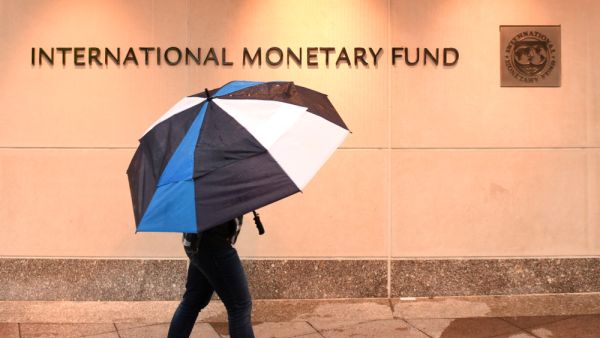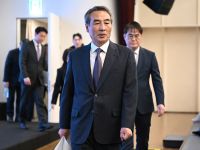ALBAWABA - Members of the International Monetary Fund (IMF) have agreed to a "significant increase" in the Fund's lending resources by the end of the year. This decision comes amidst warnings from IMF Managing Director, Kristalina Georgieva, regarding the ongoing conflict in Gaza between the Israeli army and Hamas, deepening global economic uncertainty.
During a press conference following the IMF Steering Committee meeting, Committee Chair Nadia Calvino stated that the terms of the financing increase would ensure the IMF's ability to safeguard the global financial system, although she did not disclose the specific conditions.
Georgieva emphasized that it is too early to assess the impact of the conflict on the global economy. However, she noted that the severity of the ongoing events became apparent during the IMF and World Bank meetings last week. IMF projections suggest a slowdown in global growth from 3.5 percent in 2022 to 3 percent in 2023 and 2.9 percent in 2024, significantly lower than the historical average (2000-2019) of 3.8 percent.
It remains unclear whether the International Monetary and Financial Committee will support a U.S.-backed plan for countries to contribute additional funds proportionate to their current quotas, potentially delaying gains for China and other rapidly growing emerging markets. Calvino, the Spanish Minister of Economy concluding her term as Committee Chair, stated that there is consensus on "core issues."
Georgieva stated in a press conference that the seriousness of the conflict between Israel and Gaza became evident during the IMF and World Bank meetings this week, as the situation escalated from attacks on "civilians" in Israel to the urgency of finding ways to prevent further civilian casualties in Gaza.
She remarked, "I can say that the shock people felt came during our meetings," and clarified that it is premature to assess the impact of the conflict on the global economy. She added, "What we see, of course, is recognition that this is another source of uncertainty, and much will depend on its scope and duration."
The U.S. plan includes strengthening the financial power of the International Monetary Fund and the World Bank, both headquartered in Washington, D.C. These institutions were at the heart of the economic system led by the United States and its allies after World War II, promoting international cooperation and increasing their financial resources. President Joe Biden is betting that he can revitalize them by expanding the U.S. economic footprint in developing countries worldwide, while countering China's growing international influence. Membership quotas form the foundation of the financial and governance structure of the IMF, with each member country's quota originally reflecting its relative position in the global economy.








